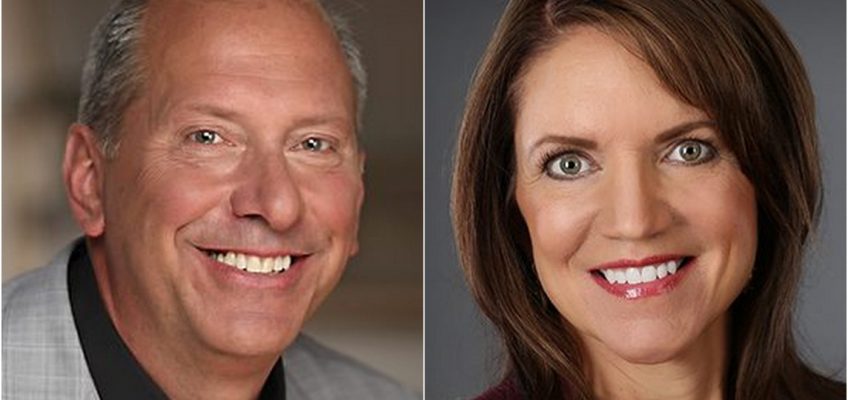Bruce Helmer and Peg Webb
Summer is here — prime time for road trips, lake weekends and last-minute getaways. But whether you’re heading up north or planning for retirement down the road, one truth holds: you won’t get far without fuel.
In your financial life, cash flow is your fuel. It’s what powers your plans, keeps you moving, and helps you recover from unexpected bumps along the way. Whether you’re navigating today’s expenses or charting a course for long-term goals, smart cash flow planning can make all the difference.
Here are five financial navigation tools every traveler and investor needs.
1. Set your destination: What are you planning for?
Before you leave the driveway, you need a destination. The same goes for your money.
Do you dream of retiring early? Buying a second home? Helping your kids pay for college? Or just tackling debt before it snowballs?
Whatever your journey, you need clear goals to help steer your financial vehicle in the right direction. Remember — if you have no destination, any road will take you there.
2. Pack an emergency kit: Why you need a financial ‘spare tire’
Every smart traveler brings a first-aid kit and a spare tire. In your finances, that’s your emergency fund.
We typically recommend setting aside at least six months of living expenses in liquid savings. This isn’t for a new patio set or vacation — it’s for true emergencies: a medical bill, a job loss or an unexpected house or car repair.
Without that buffer, you may end up dipping into retirement funds or taking on high-interest debt.
3. Scan your dashboard: Use personal financial statements
When you’re behind the wheel, your car’s dashboard gives you critical, real-time feedback: your speed, fuel level and engine health. The financial equivalent? Your personal financial statements. They give you a snapshot of where you stand, how far you’ve come, and whether you’re on pace to reach your destination.
Let’s start with your cash flow statement. This is where you compare inflows and outflows. For many people, the results can eye-opening. Your cash flow statement will highlight whether your monthly spending habits are sustainable, or whether they’re draining your tank faster than you realize. It might reveal that your subscription services, dining out or other discretionary spending are quietly eroding your savings potential. Knowing the reality puts you back in control.
Then there’s your net worth statement — essentially your financial odometer. It adds up everything you own (like your home, investment accounts and savings) and subtracts everything you owe (like credit cards, mortgages and student loans). The result is your net worth, an important bellwether for your financial health and trajectory. Over time, you want to see that number move steadily upward, whether by reducing your debt, growing your assets or both.
Together, these tools let you monitor your progress with clarity. They show you where you are, what’s working, and what parts of your plan may need to be adjusted.
4. Keep track of your route: Where’s your money really going?
Ever missed a turn because you weren’t paying attention? The same thing happens with your budget.
Many people have no idea how much they’re actually spending. Try tracking every expense for a month. Use a budgeting app or even just a notebook. You might be shocked at how much is slipping through the cracks via takeout, impulse buys or auto-renewing subscriptions.
5. Travel in sync: Communicate with your financial co-pilot
If you’re sharing the journey with a spouse, partner or adult child, make sure you’re on the same page. Do you see extra cash as fun money? Or as fuel for the next leg of the trip?
Ongoing conversations can help you avoid money fights, wrong turns, or last-minute stress. When you and your co-pilot are aligned, you’re more likely to reach your destination.
Let the journey begin
Whether you’re headed out for a weekend getaway or planning for the next 30 years, the lesson is the same: it takes intention and fuel to move forward.
Managing your cash flow isn’t about restrictions. It’s about freedom — freedom to go where you want, when you want, with confidence. Because the best journeys start with a full tank — and a good plan.
Related Articles
Your Money: Exit a business or equity position without regret
Your Money: What to do with a financial windfall
Your Money: The pursuit of happiness
Your Money: The biggest mistake people make with money
Your Money: What octogenarians want you to know
The opinions voiced in this material are for general information only and are not intended to provide specific advice or recommendations for any individual.
Bruce Helmer and Peg Webb are financial advisers at Wealth Enhancement Group and co-hosts of “Your Money” on WCCO 830 AM on Sunday mornings. Email Bruce and Peg at yourmoney@wealthenhancement.com. Advisory services offered through Wealth Enhancement Advisory Services LLC, a registered investment adviser and affiliate of Wealth Enhancement Group.


Leave a Reply